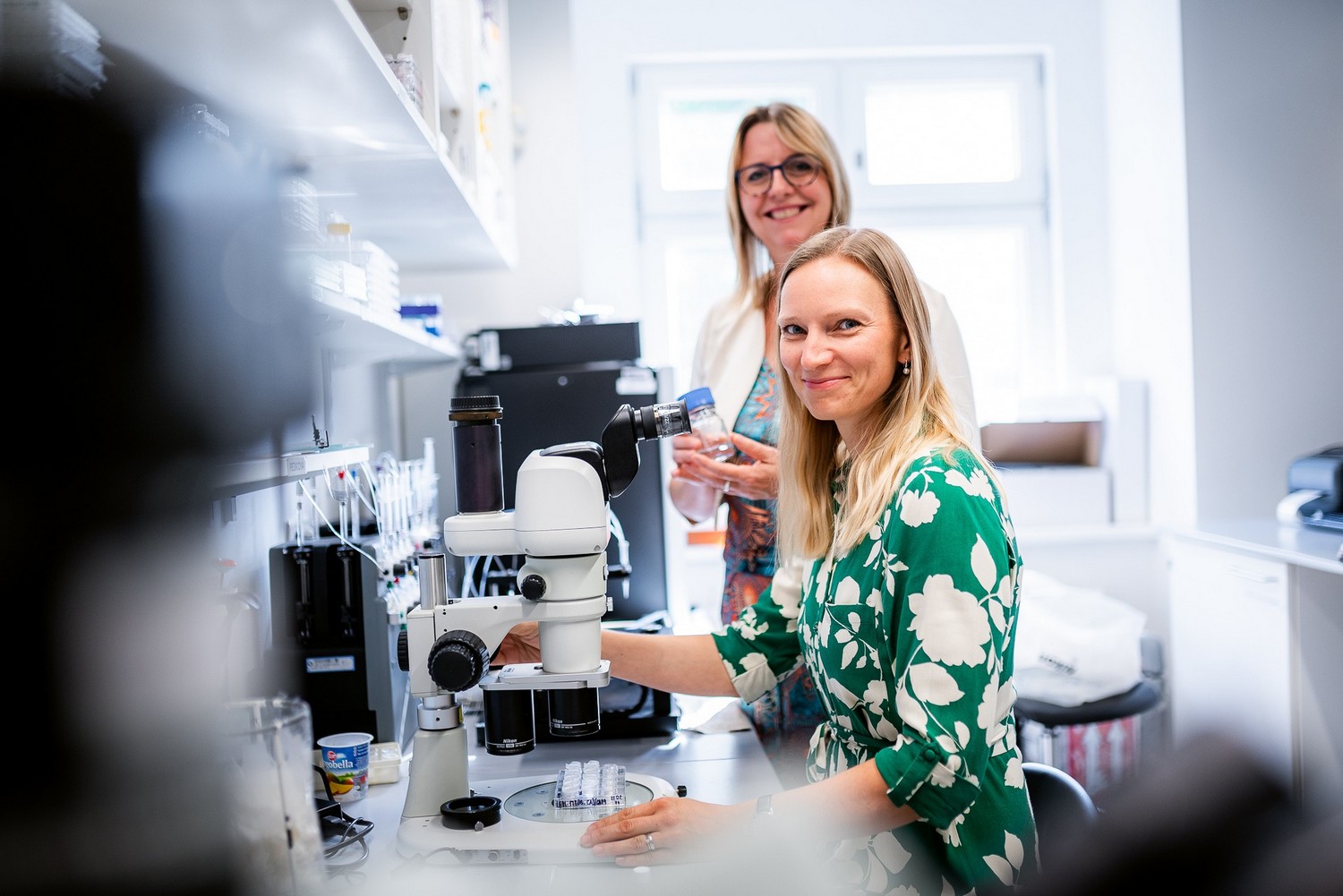
Juvenile hormone (JH) is the key player in endocrine control of insect development and reproduction. Its intracellular receptor (JH receptor) has only recently been identified as ligand-activated bHLH-PAS transcription factor Methoprene-tolerant (Met) and its partner protein Taiman.
Most of the experimental work on JH receptor has been performed on modern insects such as flies, butterflies, and beetles. By contrast, little is known on mechanistic properties of the JH receptor in ancestral, basal insect groups, and binding of JH to their JH receptor has not yet been demonstrated. Availability of radiolabeled juvenile hormone is vital to perform such experiments.
The interdisciplinary team led by Marek Jindra (Biology Centre CAS) and Aleš Marek (IOCB Prague) together with other IOCB groups led by Pavel Majer and Robert Hanus demonstrated the JH binding capacities of JH receptor protein complexes in two basal insect taxa, termites and cockroaches, using tritium labelled JH III, de novo prepared with high specific activity.
The published data present primary evidence for agonist binding by JH receptors in any hemimetabolous species and provide a molecular basis for JH action in cockroaches and termites.
Read the paper:
- Milacek, M.; Bittova, L.; Tumova, S.; Luksan, O.; Hanus, R.; Kyjakova, P.; Machara, A.; Marek, A.; Jindra, M. Binding of de novo synthesized radiolabeled juvenile hormone (JH III) by JH receptors from the Cuban subterranean termite Prorhinotermes simplex and the German cockroach Blatella germanica. Insect Biochem. Mol. Biol. 2021, 139, 103671. https://doi.org/10.1016/j.ibmb.2021.103671






